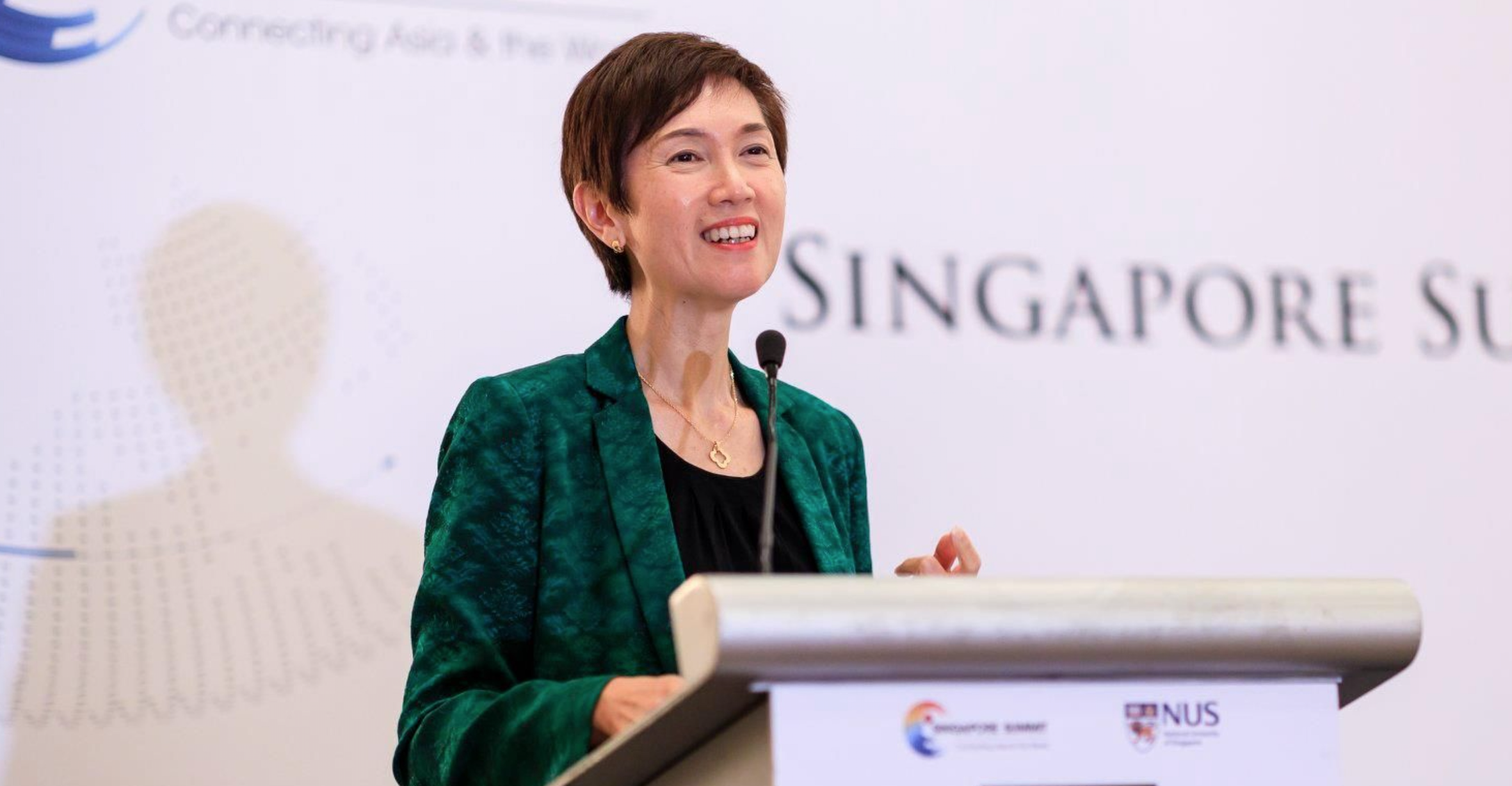Follow us on Telegram for the latest updates: https://t.me/mothershipsg
The Singapore government will "obviously have to address" the confusion surrounding Singapore's frequently changing regulations, Minister for Communications and Information Josephine Teo said in an Oct. 4 Bloomberg interview.
Teo was responding to a question posed by the Bloomberg journalist, who noted the "flip flops" and "stop start" restrictions set by the Covid-19 multi-ministry taskforce—specifically, those on the reopening and closing of the economy, and the challenges it has posed on businesses and consumers.
The minister said:
"I'm very sympathetic to the sense of confusion around, ‘How come your specific action today doesn't quite gel with what you said a few weeks ago about the direction that we're going.' We obviously have to address that."
Teo then presented two scenarios: one in which Singapore thrusts forward with the reopening regardless of the risks, and another in which the government is "level" with its people and makes adjustments accordingly.
However, Teo said, there will be consequences to bear for the first option, resulting in "more deaths than we'd like to see".
The second option of making adjustments thus becomes the more viable one.
Teo added that Prime Minister Lee Hsien Loong told Singaporeans during his National Day Rally in August that "every now and then we might have to tap the brakes."
And this is one of those occasions where we tap the brakes, Teo noted.
But while Singapore might do so occasionally, its broad direction remains unchanged.
Teo said:
"The broad direction is unchanged. That part is very clear to us. We've said that we are learning to live with the virus as a new normal. We've said that we have to move towards the endemic."
The art of communication
Teo expressed her view that the pandemic was not only a public health challenge, but also a "useful lesson in communications" for the government.
Besides the different methods and medium of reaching out to the people, there's also the question of what to communicate.
She said:
"[...] For a period of time, the case count was always the first thing that appeared, but in the last month or so, it has shifted towards the emphasis on cases that require oxygen supplementation, cases that are in ICU.
And over time, the way in which we communicate the emphasis will have to shift in line with how the Covid situation is evolving, and also how we think, as a society, we need to respond to it."
Another factor to grapple with is the balance of giving enough detail, and yet not overwhelming people with information, Teo added.
"It's an iterative process. Sometimes we oversimplify and people say you're not giving me enough information. So okay, we will adjust."
Business owners and cyber security
Earlier on in the interview, Teo, who is also the minister-in-charge of Smart Nation and Cyber Security, said that updates will be introduced to Singapore's National Cybersecurity Strategy, which functions as a safeguard for the Critical Information Infrastructure (CII) across 11 sectors.
This will be done so at Singapore International Cyber Week, taking place from Oct. 4 - 8, 2021.
However, as the effects of cyber attacks start to spillover from the digital world and into the physical one to affect operational readiness, Singapore has to "up the ante" even at the enterprise level:
"Business owners have always been very accustomed to protecting things that are of value to them. And anything that you identify as a valuable asset to your company, you make a lot of efforts to protect it. But with cybersecurity, it isn't just stuff that is physical, that can be stolen, data can be stolen."
This applies even if they are not an an operator or a provider of service to the CII, Teo emphasised.
To enable the business owners to have a greater set of tools to work with, the government has also launched a Cybersecurity Labelling Scheme last year, which falls under the Safer Cyberspace Masterplan.
The scheme aims to instil a level of "confidence and assurance" that IoT devices (devices that connect wirelessly to a network), such as smart home hubs and web cameras, come with a degree of security, Teo explained.
Related story
Top image via Josephine Teo's Facebook page
If you like what you read, follow us on Facebook, Instagram, Twitter and Telegram to get the latest updates.
